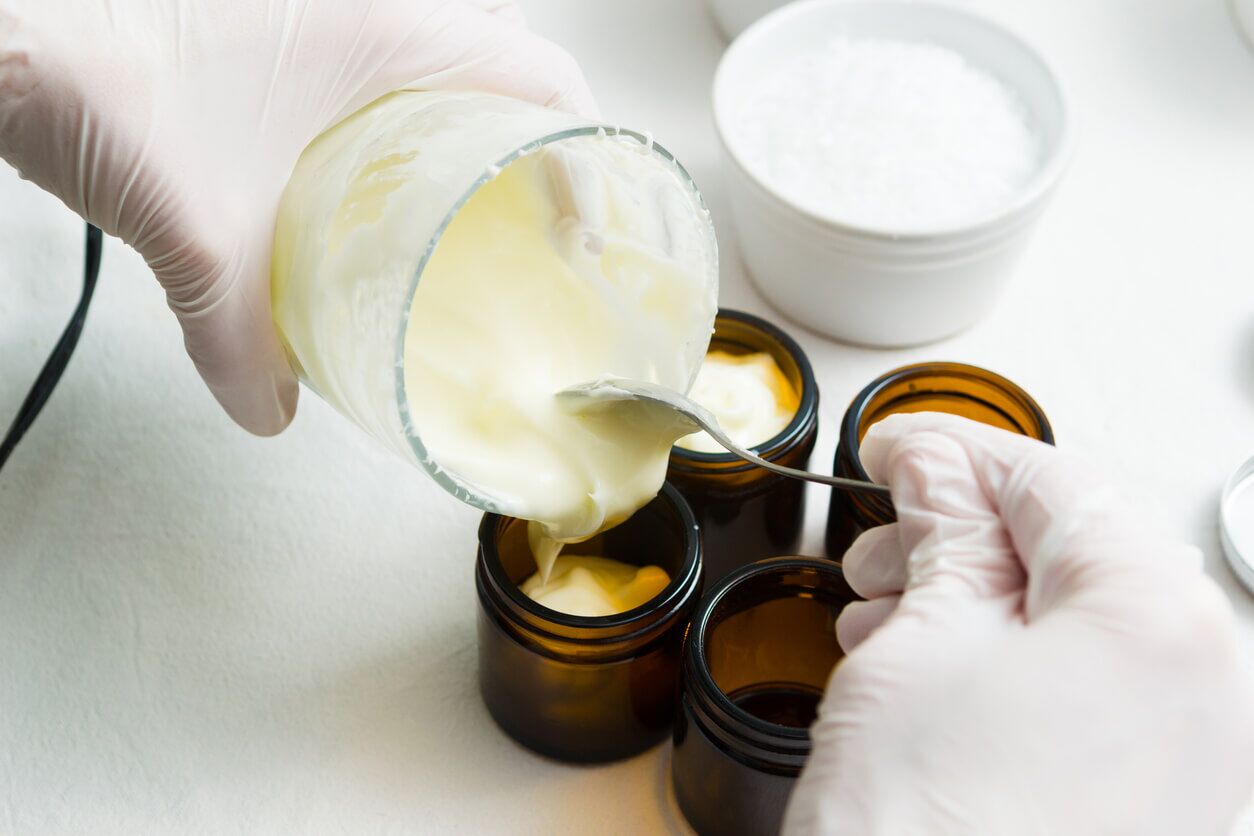3 Key Points:
- DIY sunscreen lacks proper protection – Homemade sunscreens aren’t tested and often fail to provide accurate SPF or broad-spectrum coverage.
- Natural oils aren’t enough – Oils like coconut or jojoba offer minimal UV protection and can’t replace doctor-recommended sunscreens.
- Trusted sunscreens are backed by science – Professionally formulated sunscreens are lab-tested for safety, effectiveness, and consistent UVA/UVB protection.

“Can I make my own sunscreen at home?”
According to TikTok influencers, the answer is yes. Many have jumped on a trend, sharing videos of themselves whipping up DIY sunscreen inspired by a popular creator. These formulas often include coconut oil, beeswax, shea butter, cocoa butter, jojoba oil, and zinc oxide powder.
While DIY sunscreen recipes may be trending online, the reality is that creating a safe and effective sunscreen at home is extremely difficult. Despite the abundance of how-to videos and tutorials, homemade versions often lack the proper formulation, stability, and SPF protection needed to truly protect your skin.
Continue reading as our aesthetic clinic in Singapore explores more on the popularity of DIY sunscreens, including their safety and efficacy, and why high-quality sunscreens are expensive.
Why DIY sunscreens are not safe
The answer is simple: there is no science behind them. Also, the majority of ingredients used in DIY sunscreens (mainly oils) do not provide protection from the harmful UV rays. It is also important to remember that creating a sunscreen that genuinely protects requires accurate formulation and rigorous testing.
Homemade sunscreens often lack:
- Accurate and tested SPF ratings
- Proper ingredient stability over time
- Consistent protection from both UVA and UVB rays
Without these essentials, DIY sunscreens can give a false sense of security. And without proper protection, you inadvertently expose your skin to sunburn, premature aging, and increased skin cancer risk.
“But I’m adding zinc oxide powder…”
Zinc oxide is a key ingredient in many mineral sunscreens. It offers broad-spectrum protection (blocking both UVA and UVB rays), supports wound healing, and even helps manage acne. So, it’s understandable why some people might want to include it in their DIY sunscreen.
However, simply mixing zinc oxide powder with oils or lotions at home doesn’t guarantee effective sun protection. In regulated sunscreens, zinc oxide is carefully formulated to ensure coverage and reliable SPF protection. This involves:
- Careful measurement – Zinc oxide must be used at the right concentration to deliver reliable SPF protection.
- Micronization or non-nano formulation – Depending on the product, zinc oxide is either micronized for transparency or kept non-nano for safety and environmental reasons.
- Even distribution – Zinc oxide particles have to be dispersed evenly throughout the formula to ensure consistent coverage.
Can you use natural oils as sunscreen?
Some oils, such as coconut oil, do offer minor benefits like moisturizing and anti-inflammatory properties. They may even provide a small amount of sun protection. This doesn’t mean, however, that they can effectively block UV rays. And because the quality and composition of oils can vary, so does their level of protection.
The truth is no natural oil on its own provides the reliable, broad-spectrum SPF 15–30 protection that dermatologists recommend. While natural oils can be a great part of your skincare routine, they shouldn’t replace sunscreen. For real sun protection, stick with products that are tested and proven to work.
So, why are high-quality sunscreens expensive?
With high-quality sunscreens, you’re not just paying for the product. You’re also paying for science, safety, and reliability. Behind every bottle is a combination of:
- Research and development
- Rigorous testing to ensure shelf life and consistent UV protection
- Clinical trials to verify SPF levels and UVA/UVB protection
- High-quality, non-irritating ingredients formulated for various skin types
To ensure the stated Sun Protection Factor (SPF) is accurate, sunscreens go through multiple layers of testing:
- Laboratory testing – the formulas are tested in controlled environments to measure their ability to block UV radiation.
- Human subject testing – human volunteers are exposed to a specific amount of UV light, and their skin’s response is assessed.
- SPF verification – the results are compared to lab data to ensure the SPF rating on the label reflects real-world performance.
How to choose the right sunscreen
To ensure you’re getting effective sun protection, look for a sunscreen that:
- Has SPF 30 or higher
- Offers broad-spectrum protection (shields against both UVA and UVB rays)
- Is water-resistant
- Is hypoallergenic, talc-free, and fragrance-free (especially if you have sensitive skin)
At Cutis, we offer fast-absorbing, broad-spectrum sunscreens from the Dr. Sylvia Skin Care Line. Our formulas also support overall skin health with added benefits:
- SunShield SPF 45 – A lightweight sunscreen that protects against UV damage and premature aging. It has niacinamide that helps reduce redness, blotchiness, and hyperpigmentation.
- Sheer Defense Tinted SPF 46 – An oil-free, antioxidant-rich sunscreen with a universal tint that blends. Also formulated with niacinamide, it calms the skin and helps minimize redness and blotchiness.
- HydraShield SPF 50 – A hydrating formula with hyaluronic acid and vitamin E to moisturize and improve skin texture. It provides PA+++++ UVA protection and helps reduce the appearance of fine lines and wrinkles:
Sunscreen is more than just its ingredients; it’s about how they are formulated. Even if you add zinc oxide, a DIY sunscreen simply won’t provide the reliable protection your skin needs without proper formulation.
For more skincare tips and product recommendations, check out our blog. And if you’re dealing with skin concerns that are affecting your confidence, WhatsApp us at +65 9780 2079. Schedule a consultation with one of our aesthetic doctors in Singapore and find out how we can help you feel your best in your skin.
- If you would like to be an informed patient, please contact us at +65-6801-4000 or
hello@cutislaserclinics.com. - Cutis Medical Laser Clinics, 9 Scotts Road Pacific Plaza, Scotts Medical Center #08-07, Singapore – 228210
+65-6801-4000 - hello@cutislaserclinics.com